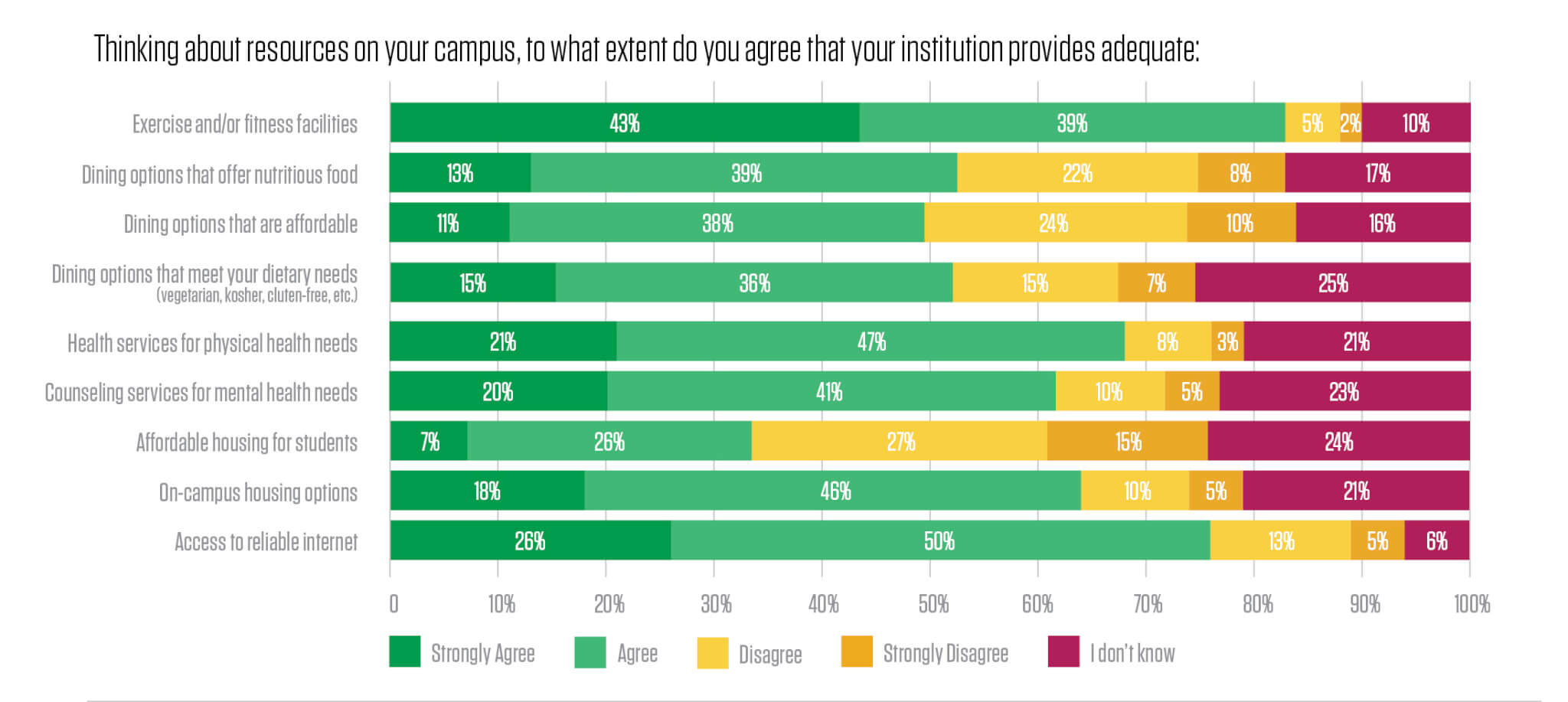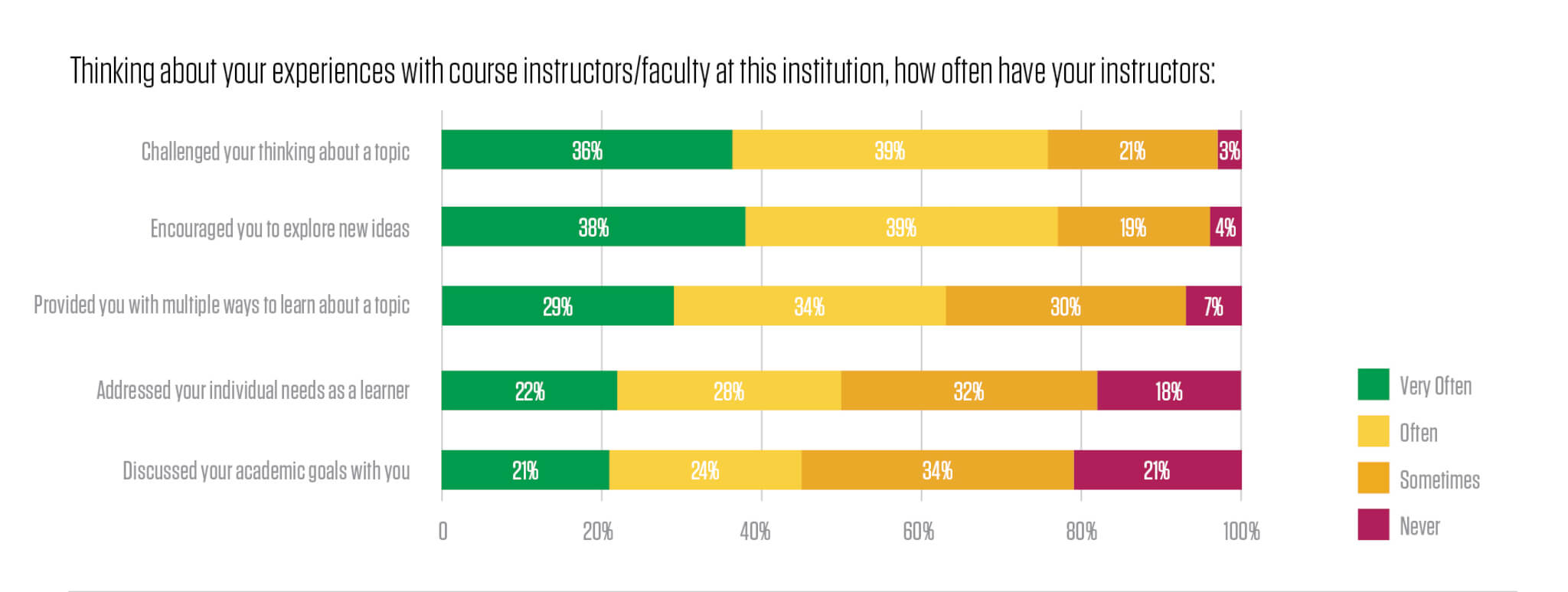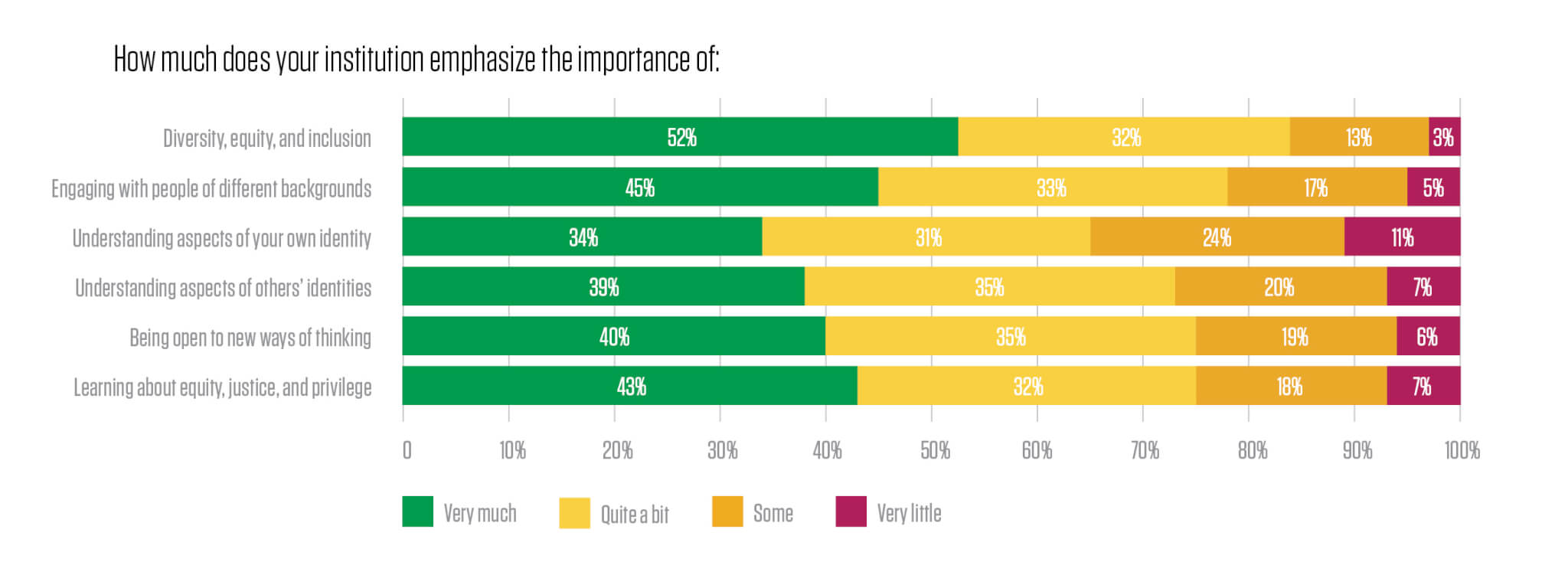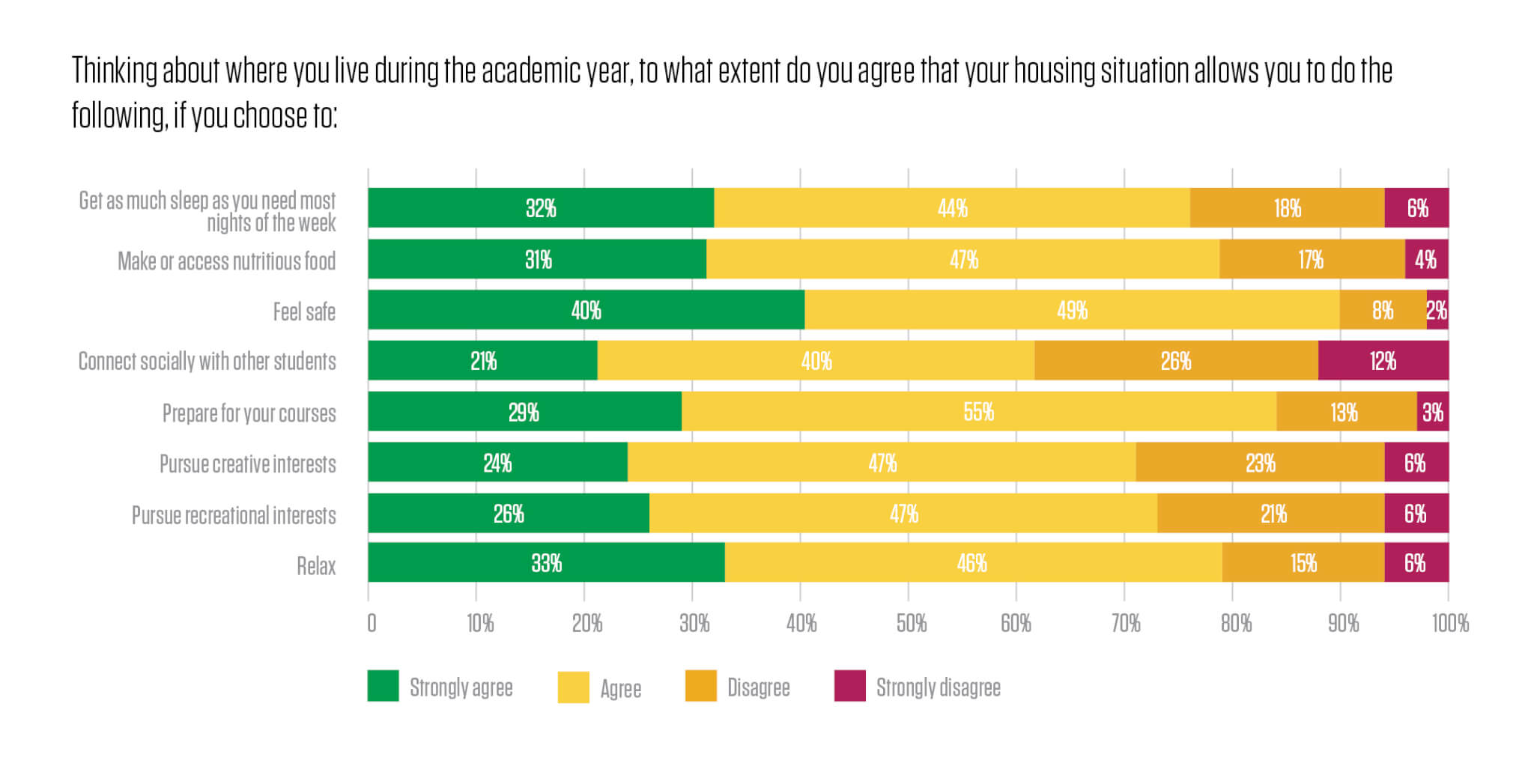News Blog: Four Recommendations for Colleges and Universities to Support Student Well-being
Last updated: April 7, 2023
By Katie Johnson, Head of Research for Education at Qualtrics and Bridget Yuhas, Director of Student Affairs Assessment and Strategy at Butler University
In recent years, colleges and universities have adopted an emphasis on holistic student well-being, which takes into account social, emotional, and physical aspects of student well-being. The shift to this approach has strong support from a large body of research showing that social well-being, diverse interactions, student engagement, mental health support, and healthy lifestyles (e.g., sleep, nutrition) improve student outcomes. Layering this research with the stressors we know students are facing today, including effects of an ongoing pandemic, reverberations from social unrest over racial injustices, a toxic political environment, and climate change, it is clear that supporting student well-being should be a priority for institutions of higher education. And the good news is that, while institutions cannot control the levels of individual well-being that students bring with them to college, they can control the way students are supported once they enroll.
To respond to the growing needs of college and university students and to the interests of institutions of higher education in knowing they are meeting those needs, the Institute for Well-being at Butler University developed a survey that allows institutions to collect student perceptions on institutional support for aspects of their well-being: the Student Well-being Institutional Support Survey (SWISS). The SWISS was purposefully designed to give actionable information to practitioners about areas of strength and opportunity in their work to support holistic student well-being.
Using the Qualtrics Experience Management platform, SWISS empowers campuses to quickly collect digital survey responses and easily visualize and interpret their results. The real-time feedback and reporting tools enable campuses to listen, understand, and act on student feedback. The result? Informed, data-driven action on a fast timeline to optimize student support.
Since the launch of the pilot survey in fall 2020, more than 25 institutions and 18,500 students have participated in SWISS. In the spring of 2023, the Institute for Well-Being at Butler University and Qualtrics published an inaugural report on the state of student well-being in higher education. Building on the findings of the report, we propose four recommendations for institutions to improve student well-being on campus:
- Use student feedback to align campus resources with areas of need.
- Work together with faculty to identify opportunities and supports that enable deeper student-faculty relationships that take into account individual student needs.
- Incorporate personal identity development into DEI training.
- Grow connection and diverse interactions in residential settings.
Use student feedback to align campus resources with areas of need
Undergraduate students who participated in SWISS agree that their institutions offer adequate fitness facilities and internet. However, only around half agree that dining options are affordable and nutritious and only a third say that their institutions offer affordable housing options.
Food and housing fall under the umbrella of “basic needs” in higher education–fundamental human needs that are critical for student success. The pandemic and rapidly rising inflation increased the number of students whose basic needs are unmet, leading some institutions to hire directors of basic needs. But at many institutions, addressing student basic needs remains a mission-critical challenge. Addressing affordable housing and food insecurity can be particularly challenging at certain types of institutions, including urban colleges and universities, where the cost of living tends to be higher, and community colleges, which typically enroll more working and first-generation college students.
To get started, colleges and universities should conduct resource and needs assessments with students to understand where gaps exist. These assessments could take the form of surveys, digital message boards, or focus groups. This information enables institutions to use student input to make informed decisions about allocation of resources to provide the best support. It’s important to continue to measure the effectiveness of changes by studying their impact and continuing to monitor and assess evolving student needs.

Work together with faculty to identify opportunities and supports that enable deeper student-faculty relationships that take into account individual student needs
Findings from SWISS indicate that while instructors frequently challenge student thinking and encourage them to explore new ideas, it is far less often that instructors assess individual student learner needs and discuss academic goals with them. Positive student-faculty interactions can improve student well-being, belonging, and retention.
Providing opportunities for students to develop deeper relationships with faculty can help them feel that their individual learner needs and academic goals are better understood. Some ways to do this include expanded office hours and small group sessions with faculty. Another strategy is to develop enhanced information sharing between academic advising and instructors to help both groups have a more holistic view of a student’s academic goals and needs.
It is critical to closely collaborate with faculty to ensure that proposed initiatives for student-faculty engagement take into account existing responsibilities and instructor workloads. One in three education employees self-identify as at risk of burnout and additional expectations should be carefully considered with instructor input.

Incorporate personal identity development into DEI training
The overwhelming majority of students report that their institutions support Diversity, Equity, and Inclusion (DEI) and that they have opportunities to interact with people from diverse backgrounds. In contrast, fewer students feel that their schools emphasize the importance of developing their own identities, which is a critical component of building a deep understanding of DEI.
Leading experts on college student development theory (e.g., Arthur Chickering, Marcia Baxter Magolda) emphasize the importance of personal identity development. With a deeper understanding of themselves, students are better able to make sense of the world around them and how they fit into it. This isn’t just important on campus but also as students transition to post-college life where self-awareness, openness to people with different backgrounds and beliefs, and healthy dialogue about sensitive topics are touchstones of a healthy society.

Grow connection and diverse interactions in residential settings
Respondents to SWISS report feeling safe where they live and that their residences provide a space to relax and prepare for class. Fewer (around 60%) agree that their residence allows them to connect socially with other students. Housing is also an area where students report fewer opportunities to interact with students from diverse backgrounds compared to other places on campus such as clubs and organizations, courses, and programs and events.
Creating opportunities for social connection can reduce social isolation, which is a potential contributor to depression and mental health issues, particularly for minority student groups. Living-learning communities are one way to promote social connection in a variety of ways–from co-fostering a dog with a peer to substance-free living to a passion for film. But students who haven’t opted into a living-learning community also need opportunities for social connection. These can be as simple as regular social activities in a place of residence, social outings, volunteer activities, competitions with other residence communities, and study groups.

What’s Next?
To learn more about the current state of student well-being in higher education, check out the full 2023 well-being report. Consider conducting the SWISS on your campus and developing an experience management program with Qualtrics to listen, understand, and act on student feedback.